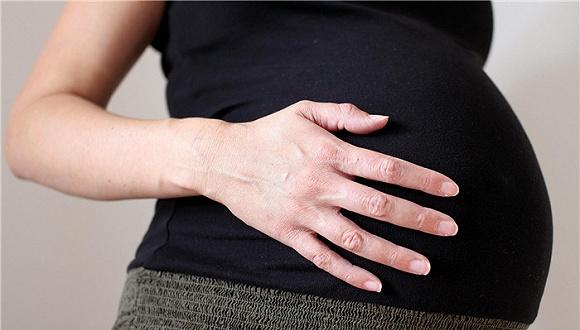Pregnancy changes a woman's brain, altering the size and structure of areas involved in perceiving the feelings and perspectives of others, according to a first-of-its-kind study published last Monday.
上周一公布的一项研究显示,怀孕会改变女性大脑某些部位的大小和结构,这些区域关系到对他人的感受和看法,这是首次进行此类研究。
Most of these changes remained two years after giving birth, at least into the babies' toddler years. And the more pronounced the brain changes, the higher mothers scored on a measure of emotional attachment to their babies.
这些变化中的大多数在宝宝诞生两年后仍然没有消退,至少维持到宝宝的学步时期。大脑变化越明显,母亲对宝宝的情绪依恋程度就越高。
"Just fascinating," said Dr. Ronald E. Dahl, director of the Institute of Human Development at the University of California, Berkeley, who was not involved in the study, published in the journal Nature Neuroscience.
"真是太奇妙了,"没有参与这项研究的加利福尼亚大学伯克利分校人类发展研究所院长罗纳德·E·达尔博士说。这项研究的论文发表在《自然神经科学》杂志上。
He said the researchers' interpretation that changes in the brain enhance women's maternal responses is "provocative, and I think it's likely to be true."
达尔表示,研究人员对大脑变化增强女性母性反应的解释"令人兴奋,我认为可能的确就是这样"。

In the study, researchers scanned the brains of women who had never conceived before, and again after they gave birth for the first time.
在这项研究中,研究人员扫描了从未怀过孕的女性的大脑,然后在她们第一次生育后再次进行扫描。
The results were remarkable: loss of gray matter in several brain areas involved in a process called social cognition or "theory of mind," the ability to register and consider how other people perceive things.
结果很明显:有几个脑部区域中的灰质减少了,这些区域涉及"社会认知"或"心理理论"过程,指的是注意和考虑他人如何感知事物的能力。
It's possibile the loss is "part of the brain's program for dealing with the future," said Paul Thompson, a neuroscientist at the University of Southern California who was not involved in the study.
这种减少可能是"处理未来的大脑程序的一部分,"没有参与这项研究的南加州大学神经科学家保罗·汤普森说。
The study strongly leans toward this possibility. Hormone surges in pregnancy might cause "pruning or cellular adaptation that is helpful," he said, streamlining certain brain areas to be more efficient at mothering skills "from nurturing to extra vigilance to teaching."
该研究强烈倾向于这种可能性。他说,怀孕期间的激素激增可能会导致一些"有用的削减和细胞适应",从而简化脑部的某些区域,提高母亲"从提供营养到保持警惕到教育"等各方面的技能。
"We certainly don't want to put a message out there on the lines of 'pregnancy makes you lose your brain,' as we don't believe this is the case," said Elseline Hoekzema, a researcher at Leiden University in the Netherlands, who led the study at the Universitat Autonoma de Barcelona in Spain.
"我们肯定不想发出'怀孕让你变傻'这样的信息,因为我们不觉得情况是这样的,"荷兰莱顿大学的研究员埃尔斯利娜·赫克泽马说道。她领导了在西班牙巴塞罗那自治大学进行的这项研究。
Pregnancy, she explained, may help a woman's brain specialize in "a mother's ability to recognize the needs of her infant, to recognize social threats or to promote mother-infant bonding."
她解释说,怀孕有助于女性的大脑专注于培养"一个母亲意识到婴儿的需求,意识到社会威胁,以及拉近母婴关系的能力"。
The researchers also scanned the brains of 17 men who were not fathers and 19 first-time fathers before and after their partners' pregnancies. The two male groups showed no difference in brain volume.
研究人员也扫描了17名没有做过父亲的男子的大脑,和19位首次为人父的男子的大脑——在他们的伴侣怀孕前后各扫描了一次。结果显示,这两组人的脑容量并无差异。












